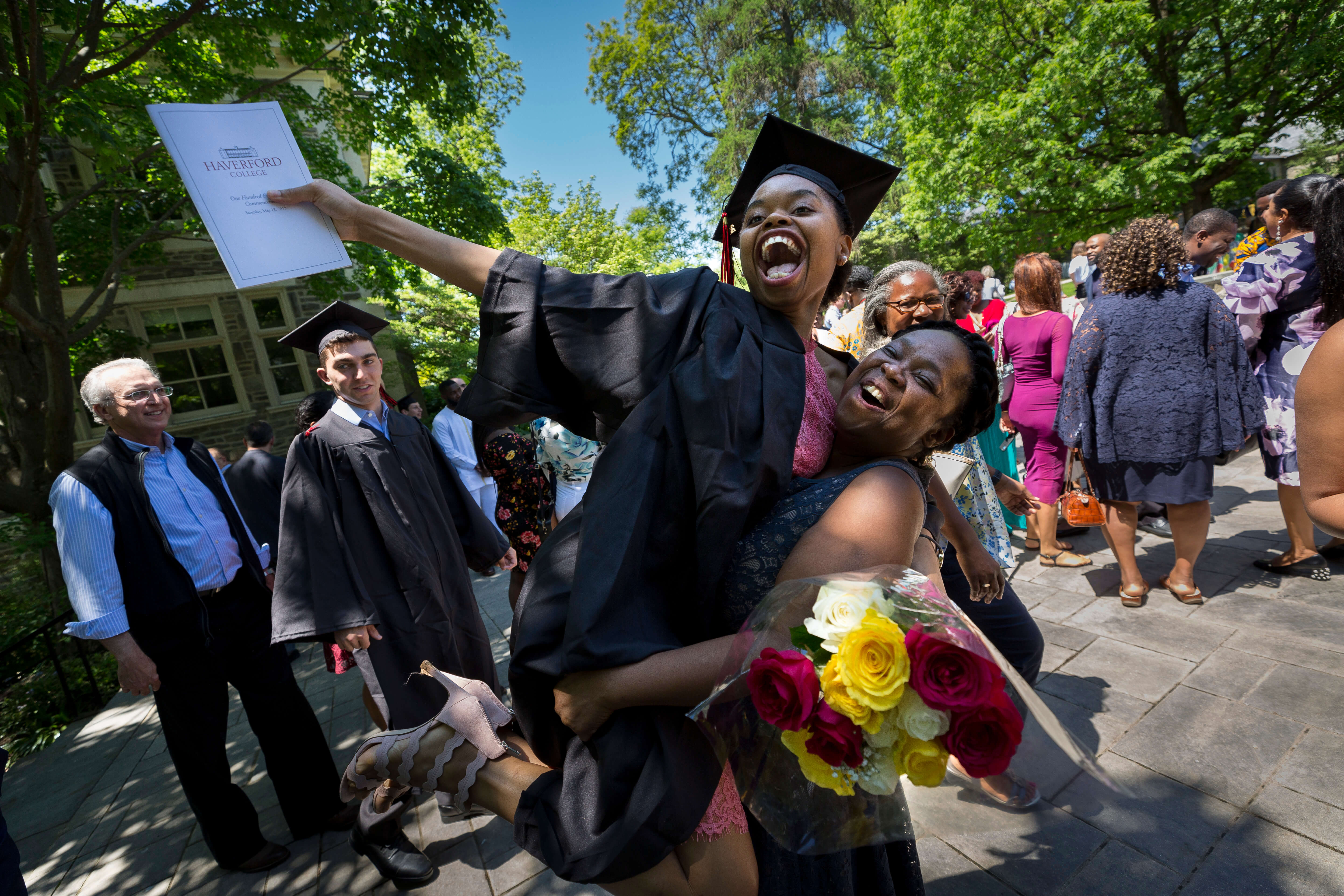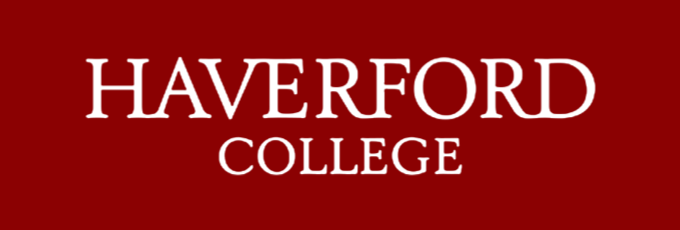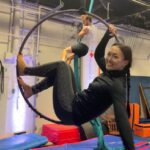“My Haverford experience started great right off the bat,” says Haverford College computer science major and statistics minor Iryna Khovryak from Ukraine. Although she had many questions about classes, social life, career opportunities, extracurriculars and so forth, these were swiftly answered within her first few weeks at the leading liberal arts college.
During the International Student Orientation, she was introduced to the American college system as well as peers and seniors she can reach out to for help anytime. In the following weeks, she was also connected with her upperclassmen academic advisor, dean, faculty pre-major advisor, the librarian, a few professors from different departments and staff members in various academic and non-academic offices. “Haverford makes sure that students are connected to all the possible support outlets they might need,” she adds.
Located on a beautiful arboretum campus just outside Philadelphia is one of America’s leading liberal arts institutions, Haverford College. This is where intellectually curious learners — who value honesty, collaboration, and above all, new ways of seeing and improving the world — come together.

Source: Haverford College
Haverford students perform real-world research and immerse themselves in hands-on learning, alongside professors who are at the top of their fields. Lecturers encourage and support creative and strategic thinking around a problem, a need, a question, or simply an interest.
From astrophysics to classical languages, students can choose from an extensive line up of majors to design their futures, graduating as well-rounded, expansive thinkers. The college’s rigorous academic programme focuses on individual growth and multidisciplinary intellectual exploration, pushing the boundaries of each discipline with a focus on innovation.
Khovryak is currently working on two research projects on campus as a software developer — the Dark Reactions Project (DRP) and GreekPal. The DRP is a joint research between the chemistry and computer science departments, “where I optimised and refactored the backend code for the new version of the programme.” GreekPal is where she trains computer vision models to recognise handwritten Ancient Greek symbols collected from manuscripts.
“This project allowed me to combine the theoretical knowledge I gained in Linear Algebra and Statistics classes with my technical experience to improve my data preprocessing algorithms,” she explains. Haverford’s small size makes it easy for students to create long-lasting relationships with professors and to collaborate with them on various projects. “I love both of the projects because they provided me with highly technical industry-related skills while still having that cozy collaborative feel of a small liberal arts school,” she explains.
Although it’s hard to pick a favourite professor as all of them have been “incredibly supportive” to her, Khovryak says, “I would love to give a big shout-out to Shayna Nickel, who is the director of the Haverford Innovations Programme.” The Haverford Innovation Programme (HIP) connects thinkers, makers and doers. This student-led programme addresses fundamental entrepreneurial skills and culminates with a planning document to move ideas beyond campus grounds. Hands-on projects, hackathons, off-campus conferences and collaborations with Haverford Centres and academic departments produce graduates that push boundaries of several disciplines at a time.
“Shayna and HIP have organised multiple Tri-Co hackathons, incubator events, idea-thons, and sponsored students in their innovation pursuits,” Khovryak shares. It has helped her “develop soft skills like ideation, prototyping, impact maximisation, and project management to accompany the hard skills I got from the research projects.”
HIP provides multiple pathways to innovation and entrepreneurship, encouraging students to apply their skills, follow their passions, and implement their ideas while equipping entrepreneurial-minded students with more resources and support at Haverford. Shannon Mudd, an economics professor who has worked closely with HIP, said the programme can “make people more aware of the advantages and disadvantages of going out on a business on your own” by organising events about innovation and by giving students a place to pursue their own ideas.
This summer, Khovryak will be working at Twitter as a software engineering intern. Next, she has plans to forge a career in software engineering and to use her international experience to drive change in her home country’s technology and education sectors.
Khovryak’s story is a testament to the enduring relevance of a liberal arts degree and the impact of a Haverford education. She describes its rigorous curriculum, which pushes students to excel in both humanities and sciences, as “an invaluable experience in any type of future career pursuit.” To learn more about Haverford College’s one-of-a-kind education, click here.
Follow Haverford College on Facebook, Twitter, Instagram and YouTube.











